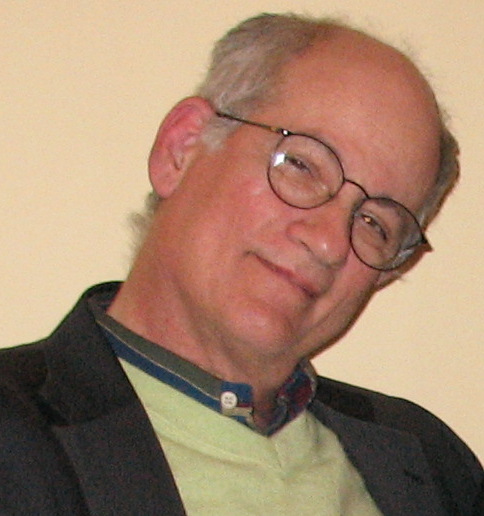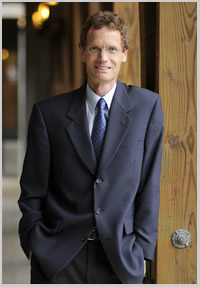|

| Eric Gans
Professor Gans received his PhD in French from John Hopkins University in 1966 (with distinction). After attaining full tenure as a French Professor at UCLA in 1976, he first put forward his ground-breaking theory on language origin in 1981 with The Origin of Language: A Formal Theory of Representation. Since then, he has devoted five more books to the subject, including The Scenic Imagination: Originary Thinking from Hobbes to the Present Day (2007), Signs of Paradox (1997), and Originary Thinking: Elements of Generative Anthropology (1993). He currently teaches courses on French literature and French film at UCLA.
|

| Andrew McKenna
Professor McKenna also received his PhD from John Hopkins Universtiy in 1970 with a Spanish minor and currently teaches French in the Department of Modern Languages and Literature at Loyola University Chicago. He is an expert on the work of René Girard and mimetic theory. Among his recent publications are "Girard, Rorty and the Novel," appearing in Renascence (Summer 2003) and "Scandal, Resentment, Idolatry: The Underground Psychology of Terrorism," appearing in the Spring 2002 issue of Anthropoetics: The Journal of Generative Anthropology. Between 1996 and 2006, he served as Editor-in-Chief of Contagion: The Journal of Violence, Mimesis, and Culture.
|

| Mark Vessey
Professor Vessey completed his D.Phil in Literae Humaniores at the University of Oxford in 1988. He is a Professor of English at the University of British Columbia and holder of the Canada Research Chair in Literature / Christianity and Culture. He has published a book on Latin Christian Writers in Late Antiquity and their Texts (2005), and has edited collections and written numerous articles on a wide variety of topics including Jerome, Augustine, Erasmus and the literary Renaissance, classical and Christian traditions in European literature, scripture(s) and literature, literary theory, and the bibliography/history of books.
|
|


